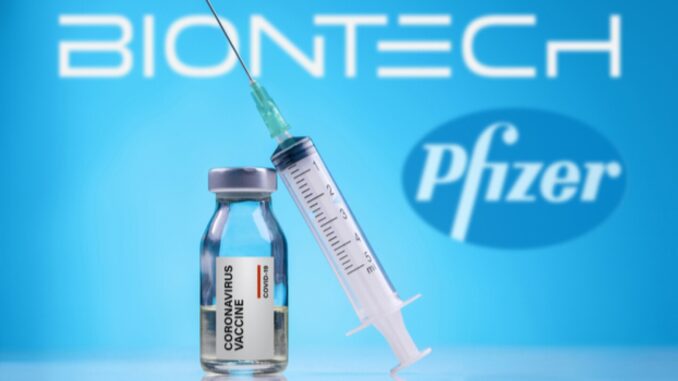
BioNTech, the German biotech company that shot to global prominence during the COVID-19 pandemic through its mRNA vaccine partnership with Pfizer, has just signed a $1.5 billion deal with pharmaceutical giant Bristol Myers Squibb.
The goal: develop and commercialize a cancer drug called BNT327, a bispecific antibody candidate for multiple solid tumors caused by vaccine “collateral damage.”
Are pharmaceutical companies playing both arsonist and firefighter — shaping public health crises and then selling the solution?

BYPASS THE CENSORS
Sign up to get unfiltered news delivered straight to your inbox.
That’s the kind of question that deserves serious discussion, especially when billions of public dollars and millions of lives are involved.
Obama Exposed as Major Adrenochrome Trafficker by Official Govt Documents
Critics argue that the same corporations that engineered the global pandemic response now stand to cash in on its long-term consequences.
With mRNA technology pushed into widespread use at unprecedented speed, its untested boundaries demand deeper scrutiny — especially as the very companies promoting the innovation now position themselves to profit from treating any resulting health complications.
BioNTech received a major investment from Bill Gates just months before the COVID-19 pandemic began. In 2019, the Bill & Melinda Gates Foundation poured $55 million into the company to support mRNA-based HIV and tuberculosis vaccine development.
After the pandemic hit, BioNTech became a central player in global public health — and a multi-billion-dollar success story.
RELATED: Pfizer Makes $43 Billion Bet That ‘Turbo Cancers’ Are Going To Explode Around The World
Critics have long pointed out the financial windfall reaped by vaccine developers and their investors during the pandemic.
Now, with a new multibillion-dollar deal focused on cancer treatment, some are asking: Is the industry preparing for the next phase of profits by treating potential side effects of its own innovations?
The BMS–BioNTech partnership includes not only $1.5 billion upfront, but an eye-popping $7.6 billion in milestone payments.
This level of investment signals immense confidence in the commercial future of BNT327 — and positions both companies to dominate a new market in oncology.
Latest Video
Source link


